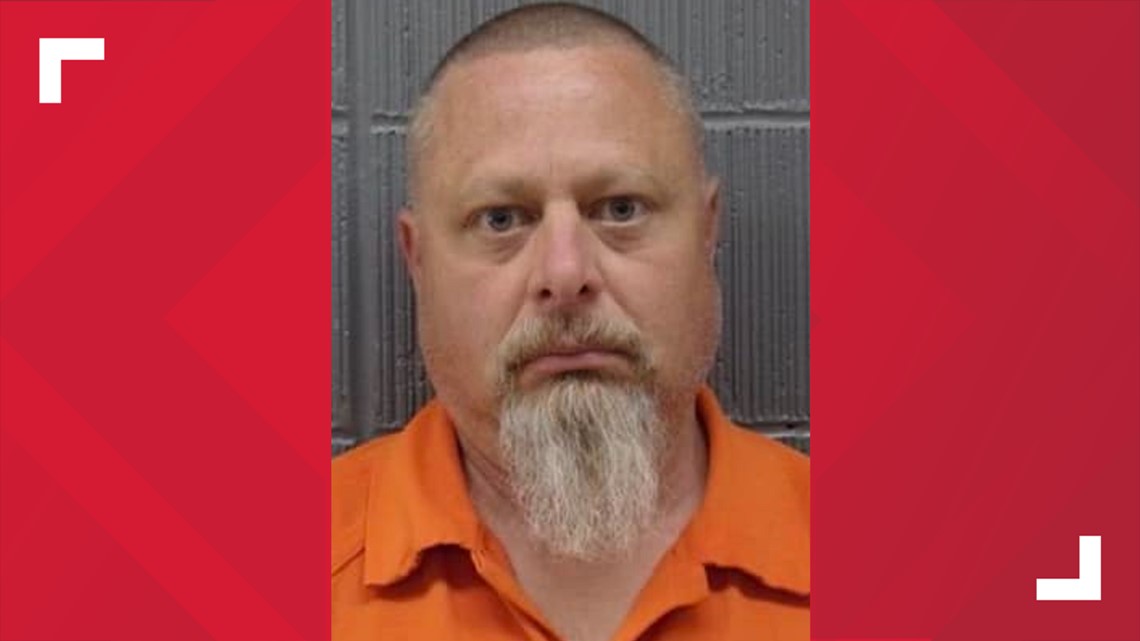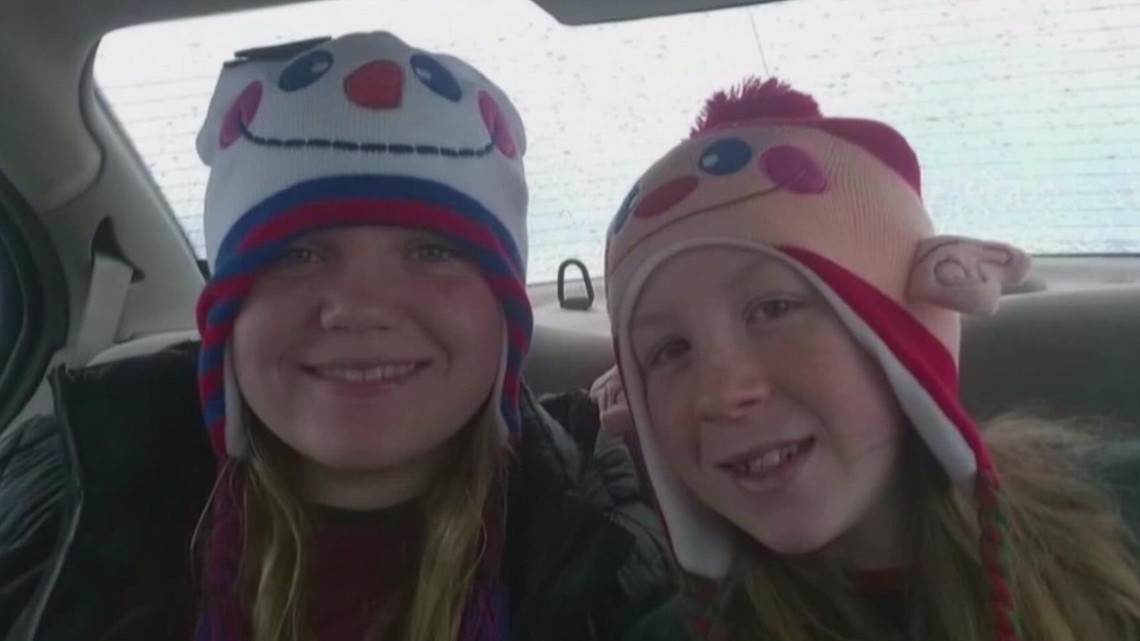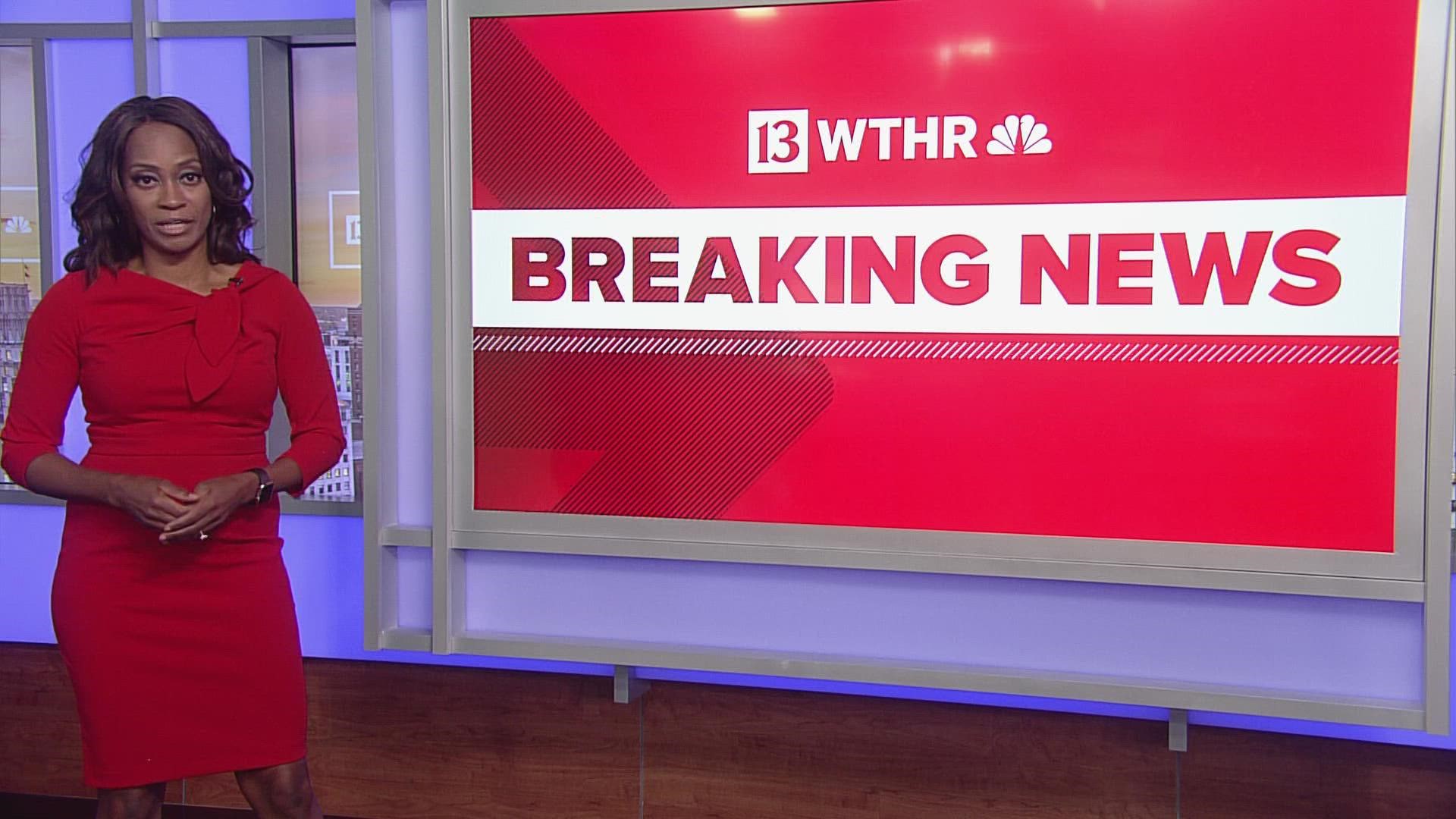DELPHI, Ind. — Carroll County Judge Benjamin Diener has recused himself from the Delphi murders case.
In his order, Diener said he "has determined that the particular circumstances within the underlying case warrant recusal and dictate that a special judge be appointed in this case."
It is not clear what the circumstances are that the judge referenced, but in previous emails and court documents – he has cited safety concerns and that he and his staff have been overwhelmed by the public attention and requests for information.
The case will now be handled by a special judge. 13News learned the Office of Judicial Administration is looking to appoint Judge Fran Gull in Allen County to the case.
Under the state’s Code of Judicial Conduct, there are several reasons that would require a judge to step away from a case. They includes if the judge has “a personal bias or prejudice concerning a party or a party’s lawyer” or if they have personal knowledge of disputed facts for the case. Having a close, personal relationship to someone involved in the case or having a third degree of relationship to someone in the case also disqualifies a judge.
Also Thursday, the Indiana Department of Correction said Richard Allen, who has been charged with murder in the deaths of Abby Williams and Libby German, has been moved to one of their facilities. For safety and security, the IDOC declined to say which facility Allen is being held.
Judge Diener's plea for help
A Carroll County judge agreed to release more details about the arrest of a Delphi man charged with murder, while also asking state court administrators to help him deal with a brewing “storm” of requests following his order to keep important court documents sealed in the case.
Last week, Circuit Judge Benjamin Diener found there was probable cause to arrest and charge Richard Matthew Allen with two counts of murder in the 2017 killings of Abby Williams and Libby German. Once a suspect is arrested, state law requires the probable cause affidavit – also known as a PC – to be publicly released. That document outlines the evidence the led police to arrest a suspect, and would provide additional details to explain why police believe Allen is connected to the murders.
But before formally filing the charges, Carroll County prosecutor Nick McLeland asked the judge to seal all documents related to the case, including the PC. He cited Rule 6 of Indiana Rules to Access Court Records, which states “in extraordinary circumstances, a Court Record that otherwise would be publicly accessible may be excluded from the Public Access by a Court” if a requestor makes a written request that shows dissemination of the record will create a significant risk of substantial harm or a prejudicial effect to ongoing proceedings that cannot be avoided if the record is released.
Based on the request, Diener issued an order sealing records in the case until a public hearing can be held to further consider whether the records should remain under seal. But the broad order, effectively sealing even the most basic court information in a high-profile murder case, triggered questions and criticism from legal experts, the media and some members of the public.
13News appealed directly to the judge, the prosecutor and state court administrators to get answers and to advocate for transparency about the case. Just hours later, the court decided to publicly release more information about the arrest of Richard Allen.
New details revealed
In response to an Indiana Access to Public Records Act request from 13News, Diener sent an email Wednesday morning to WTHR and state court officials granting several of 13News’ requests for case information. Among the details released:
- Allen's initial bail was set at $20 million following his arrest. (The prosecutor said several days later that Allen is now being held with "no bond.")
- Case summary information showing Allen's past and upcoming court dates
- A case number so the public can follow new details and events in the case
- A notice setting a Nov. 22 date for a public hearing for Diener to determine whether important records in the case will remain under seal


All of that information now appears on the state’s searchable court information website — where anyone can see it — instead of being hidden as it had been for the past six days since charges against Allen were first filed.
Still under seal, however, is the detailed probable cause affidavit detailing evidence that police have gathered against Allen. That will be the focus of the public hearing on Nov. 22. At that time, the prosecutor will get to argue (if he chooses) why case information should remain sealed, while members of the public and representatives from the media can tell the judge why the public would be better served by releasing the documents for public inspection.
In response to questions sent by 13News, the chief public information officer for the Indiana Supreme Court contacted Diener Tuesday night to share concerns and offer assistance.
"From a PR standpoint, I am concerned that there is a sealed case with no cause number available (or known publicly), no PC, and no public hearing date to determine if the record should be sealed," wrote Indiana Supreme Court Chief PIO Kathryn Dolan. "I do suggest the court be clear with procedural information on what is public and when or why (according to the rule) it is not public."
She advised the judge to be transparent about court rules and procedures.
"The press will continue asking for information to be made public. While that does not mean the information is public (or should be public), I do suggest the court be clear with procedural information on what is public and when or why (according to the rule) it is not public," Dolan wrote.
Wednesday morning, the court released online much of the basic case information sought by 13News. At the same time, the judge sent 13News an email that detailed the difficulties he and his court staff are facing since the prosecutor and Indiana State Police announced the probable cause affidavit is sealed and not available for public viewing.
"Shield me…from this storm"
In his message – sent to state court administrative staff and copied to 13News – Diener wrote "Respectfully, I need a team of people who can handle these requests for alleged public information where there is no public information."
He went on to explain that his small court staff has been overwhelmed by the "storm" of requests related to public records that have been sealed. Diener wrote:
Just so the world knows. The Carroll Circuit Court consists of me, Benjamin A. Diener, the judge.
My court reporter was hired Friday and began Monday.
My bailiff answers the phone, has no experience and no knowledge about legal process.
Thankfully, there is a Court Administrator that has experience, but she has duties regarding Carroll Circuit and Carroll Superior Courts.
That is it.
So. I am begging for some assistance to shield me, the Court, from this storm so that I, the Court, can keep running the Court.
Otherwise, I’ll do what? Read to everyone Rule 6A of Indiana Rules of Court: Rules on Access to Court Records and explain to everyone that the Supreme Court and statute allows for this precise relief.
It is not the Court who has a duty to notify the public, it is the Prosecuting Attorney’s Office, as the requestor.
Is it honestly the Judge’s duty to reply to each non-party request for “information” and explain why when a request is rendered confidential until a hearing, it is a logical impossibility to acknowledge the existence of the confidential information?
Just sending this inquiry took 15 minutes of my time. Imagine actually responding to each of these requests.
Please advise.
The email provides rare insight into the impact that sealing records in a high-profile murder case has on a court staff in a small, rural community.
Filing to move Allen to state custody
On Nov. 2, the Carroll County sheriff filed a request to have Allen moved to the custody of the Indiana Department of Correction. The judge approved that request on Nov. 3, noting: "that Defendant is an inmate awaiting trial and is in imminent danger of serious bodily injury or death, or represents substantial threat to the safety of others." The judge clarified the danger was to Allen from the public. It is not related to any of Allen's actions since being taken into custody.
The judge then notes that there are videos already online that contain family members of the judge, including photos.
The document on the order to transfer custody of Allen claims he indicated at the initial hearing on Oct. 28 that he planned to hire his own attorney. Allen was given 20 days to get an attorney. Allen was said to have been in protective gear for his own safety.
The judge notes: "The public's blood lust for information, before it exists, is extremely dangerous."
Case is highly unusual
The flood of questions and requests surrounding the sealed records also underscores just how unusual it is for public court records to be kept hidden following the arrest of a murder suspect.
"I'll bet I filed close to 1,000 murder cases as a prosecutor, and when a suspect was in custody, not once did I ever file to seal the probable cause," said former Lake County, Indiana, prosecutor Jack Crawford, who has practiced criminal law for 35 years. "That's an important public document and advises the public what is going on in the case. Considering this is one of the most notorious murders in Indiana history … the public has a right to know important facts about this most serious case."


"It is surprising," agreed Novella Nedeff, who spent nearly two decades as a public defender and now teaches law at Indiana University. "I dare say on the state level, I can't think of ever hearing of a probable cause affidavit being held 30 days after an arrest was made."
Earlier this week, Nedeff told 13News that releasing probable cause information helps ensure due process for the defendant while also allowing the public to scrutinize the justice system and ask important questions. In this case, both due process and transparency could be in jeopardy because the evidence against Allen is being kept secret, she said.
"Not only does the public not get to see important information, but we don't even know if the case is under seal right now for the defense. He has a right to know what he’s accused of so he can mount a defense and preserve evidence to prove his innocence. You can't do that if you don't know what they're accusing you of."
Despite an arrest, the Carroll County prosecutor and Indiana State Police say they want case records to remain sealed to give them additional time to receive additional tips about the case.
"This investigation is still very much ongoing," said McLeland, speaking to a large crowd of media and Delphi residents who gathered Monday to hear news of Allen’s arrest. "We're keeping the tip line open, the tip email open. We encourage everybody to continue to call in tips — not only about Richard Allen, but also about any other person you may have. For that reason and for the nature of this case, the probable cause [affidavit] and the charging information has been sealed by the court."
13 Investigates is continuing to request the probable cause affidavit in the Delphi murder case because, under state law, it is considered to be a public document. 13News will attend the Nov. 22 court hearing where the community and media may advocate for unsealing public records that still remain off limits to the public.

